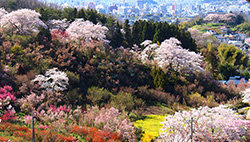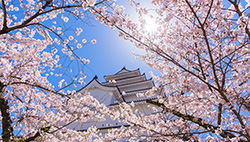Women Brewing Sake: Fukushima’s Female Brewers’ Perspective
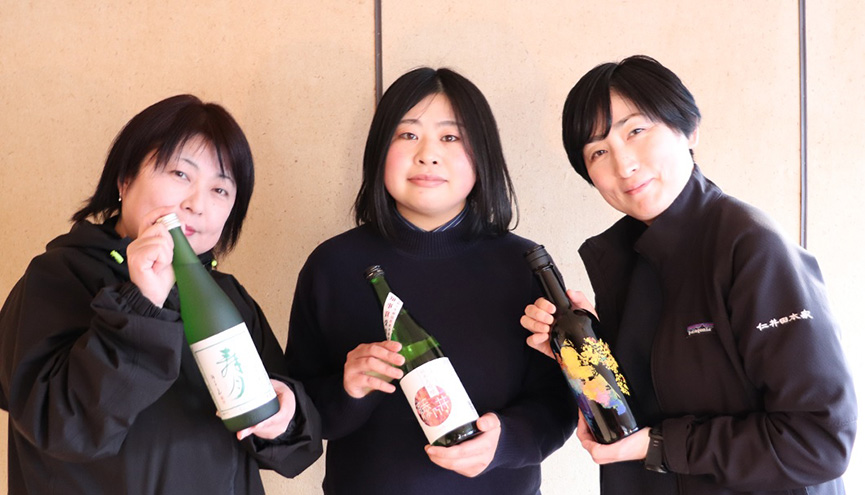
In Fukushima Prefecture, there are over 50 sake breweries spread across three distinct regions: Aizu, Nakadori, and Hamadori. These breweries leverage the unique climates and local characteristics of each area in their sake production.
During the nine times leading up to 2022, sake from Fukushima Prefecture secured the highest number of gold awards at Japan’s most prominent domestic sake competition, the Annual Japan Sake Awards. Although this winning streak was interrupted in 2023, it is evident that the prefecture has some of Japan’s premier sake brewing techniques.
There are many women actively working as staff and toji master brewers at sake breweries across Fukushima. In this article, Maki Niida from the Niida Honke Brewery and Ko Sato from the Sato Brewery (both located in Koriyama City), and Rina Suzuki from the Suzunoi Brewery in Tenei Village discuss women’s roles in the sake industry.
Breweries:
Niida Honke Brewery (Koriyama City)
Established in 1711, Niida Honke is known for their flagship brands Niida Shizenshu and Odayaka. They are dedicated to using rice grown through natural processes and pure water to craft junmai sake using the kimoto method, guided by the principle that sake should be a healthful beverage. Niida Honke hosts monthly public events at the brewery and also develops fermented foods using sake-making techniques.
Sato Brewery (Koriyama City)
Founded in 1710, the Sato Brewery’s signature sake, Fujinoi, is named after a well (i) on their premises adorned with blooming wisteria flowers (fuji). They uphold a traditional approach that prioritizes meticulous craftsmanship, leading to a notable enhancement in sake quality in recent years. The brewery was honored with the Governor’s Prize in the junmai sake category at the 2023 Fukushima Prefecture Autumn Sake Appraisal.
Suzunoi Brewery (Tenei Village)
Dating back to 1811, Suzunoi uses water from the mountain behind the brewery and upholds the longstanding sake-making tradition of the Nanbu Toji, or Nanbu school of brewing. Known for their sake that mirrors the brewers’ integrity, the brewery launched Jugetsu, a junmai ginjo sake crafted from the Kamenoo rice variety cultivated by their toji (master brewer) in 2020, aiming to captivate a new audience of sake enthusiasts.
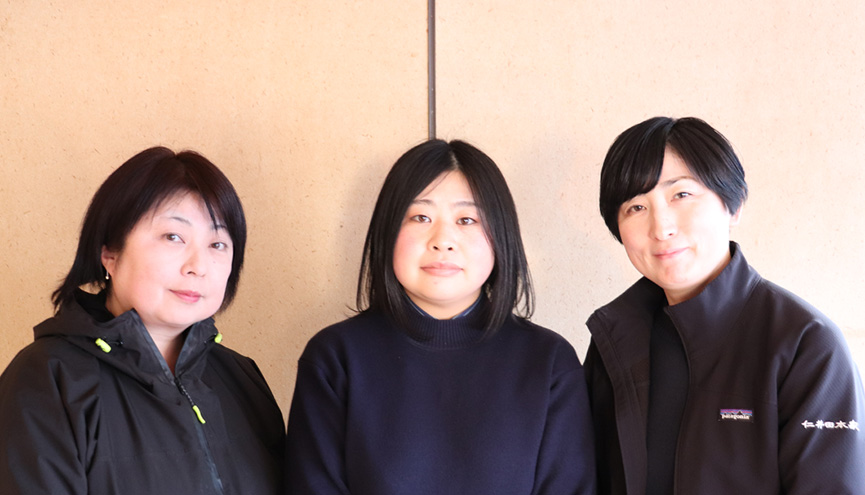
Maki Niida from Niida Honke (right), Ko Sato from the Sato Brewery (center), and Rina Suzuki from the Suzunoi Brewery (left)
Female Brewers Thriving in Fukushima Breweries
—What your responsibilities are at your respective breweries?
Maki Niida: My husband Yasuhiko Niida is the eighteenth-generation proprietor of our brewery. He is in charge of making our sake whereas I am the one who sells it. I am responsible for public relations activities, social media communication, participating in various events across the country, as well as developing fermented foods.
Ko Sato: My aunt is the president and while I am technically a director, in practice I do anything and everything! Analyzing the sake starter and moromi (mash) is one of my jobs, and I also assist in the washing and steaming of rice, managing administrative tasks and participating in events.
Rina Suzuki: I am also a director, and I too manage various tasks like administrative work, in-store sales, bottling, and labeling. When the brewing team is short-staffed, I am called upon to assist. Sometimes, I even prepare meals for the brewers. Our brewery team is mainly comprised of older men who have been with us for a long time. But I see that Niida Honke has many female employees.
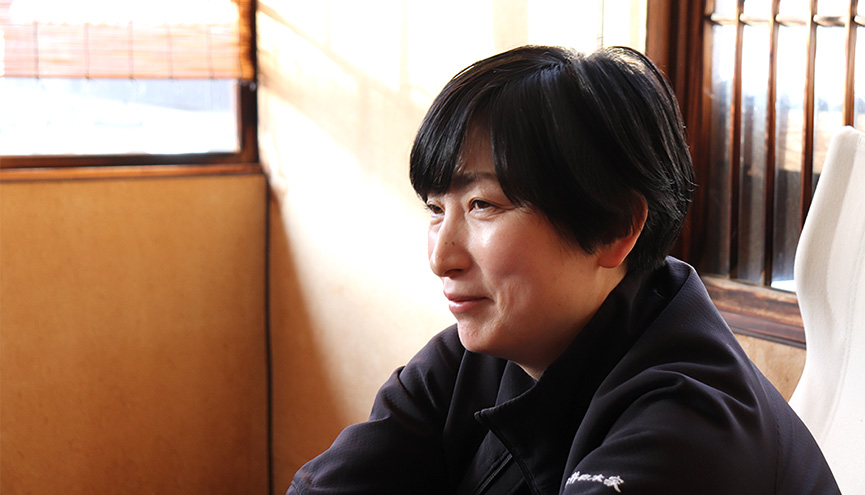
Niida: Yes, about half of our brewery staff are women.
Suzuki: I’m really curious to know how breweries with a high percentage of female staff make it work. When working in the brewery, I’ve noticed that the facilities and tools don’t always suit women’s physical size. Didn’t the Sato Brewery renovate their facilities a few years ago?
Sato: Yes, about 6 or 7 years ago, we underwent a significant renovation to accommodate ginjo sake production. Still, there are many areas I wish to improve from a female perspective.
Niida: We are currently downsizing unnecessary parts of our building, and I know that there’s more to do to make the brewing environment more female-friendly. I personally feel that detailed oriented tasks like labeling the bottles seem better suited for women, but our female staff also happily take on physically demanding tasks, like rice cultivation.
Suzuki: I also think that people have different strengths and weaknesses based on their gender. Effective role division might be a good approach. I haven’t had the opportunity to learn about what other breweries are doing in regards to these issues, so it is enlightening to hear the perspectives of other women working in the field.
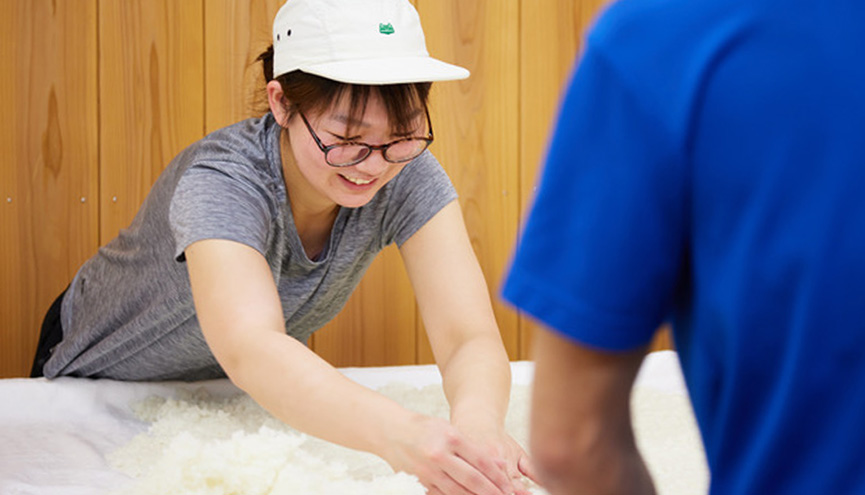
One of the female brewers working at Niida Honke
—Are there many women like you in Fukushima breweries?
Suzuki: I feel that there are quite a few of us in Fukushima, at least as compared to other prefectures.
Niida: For instance, Yuri Hayashi from the Tsurunoe Brewery in Aizu Wakamatsu City, Saori Kobari from the Daitengu Brewery in Motomiya City, and Rie Hoshi from the Kitanohana Brewery in Kitakata City are all very active in the industry.
Sato: They are really inspiring!
Suzuki: When you hear the terms like “female brewery owners” or “female toji (master brewers),” it may sound glamorous. But knowing first-hand the hard work they put in, I have so much respect for them. Even if we do not know each other personally, I feel a sense of comradery.
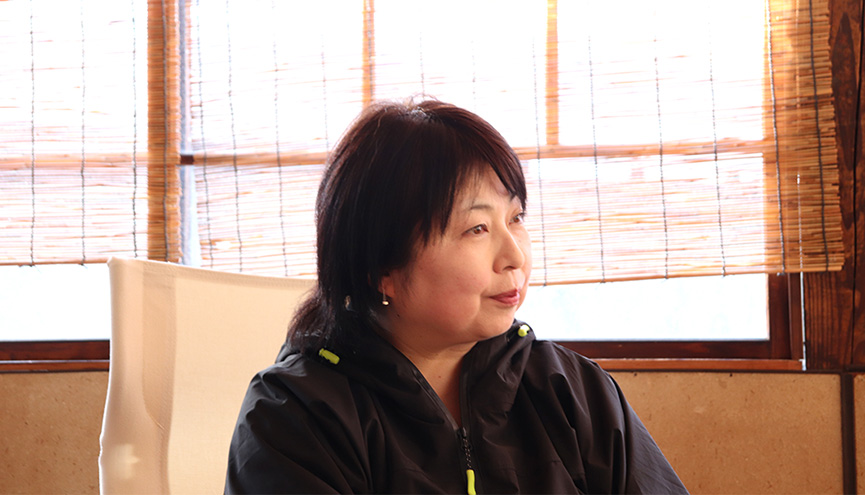
—Perhaps this mutual respect is due to Fukushima’s brewers being such a tight-knit community?
Suzuki: I think the Seishu Academy (a prefectural vocational training institution that teaches sake brewing knowledge and skills) plays a huge role.
Sato: Brewers from various breweries across the prefecture go there to learn more. The relationships built there continue post-graduation, and it is wonderful that different breweries can easily communicate with one another.
Niida: I didn’t personally attend the academy, but I still feel there is a strong connection among Fukushima breweries. Furthermore, I think the Great East Japan Earthquake had a profound impact. Enduring the aftermath, including unwarranted reputation damage, and collaborating towards recovery likely contributed to the sense of solidarity among Fukushima breweries.
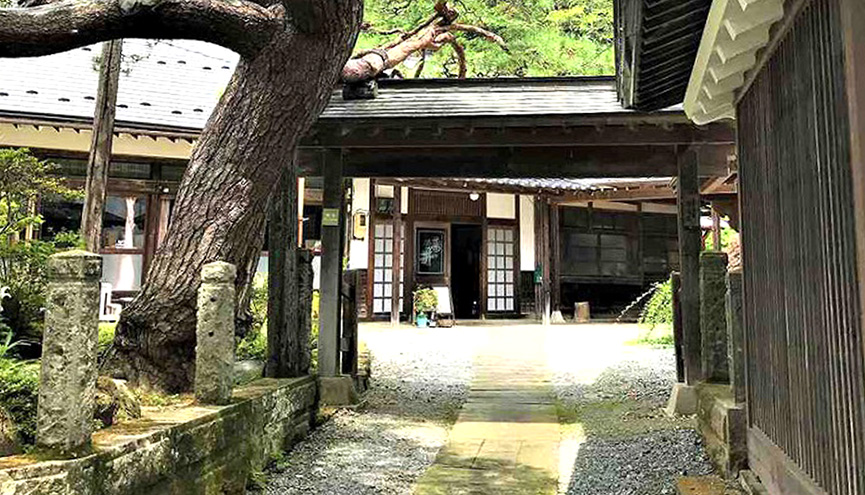
The exterior of the Suzunoi Brewery
Living in a Brewery: What It’s Like Being a Daughter or Wife at a Brewery?
—For those of you who married into sake brewing families, did you feel any pressure?
Suzuki: Rather than pressure, I kind of felt like I had been tricked (laughs). I had heard from my husband that his parents ran a business in the countryside, but I never imagined it would be a sake brewery!
Niida: I love sake so much that I didn’t really mind. It might have been just that I was blinded by my love for my husband at the time (laughs).
Sato: Since I was born into a brewery, I grew up thinking that I would take over the family business someday. They even named me Ko (using a kanji character that denotes fermentation) so I definitely felt some pressure.
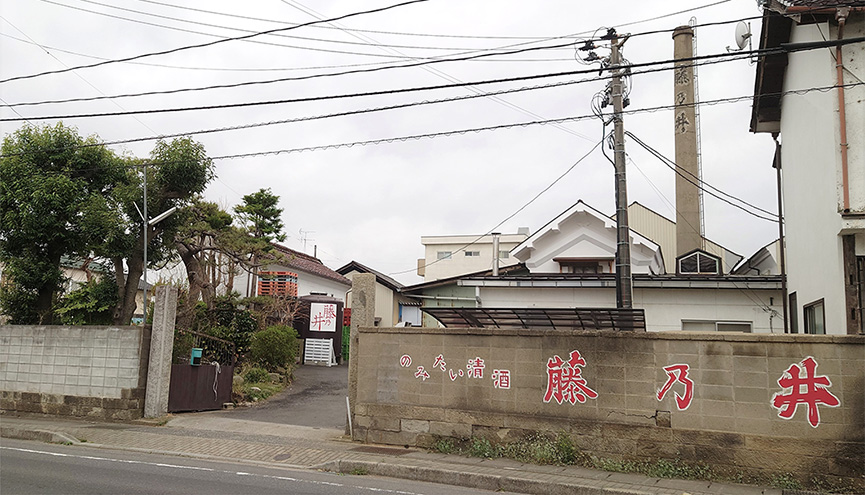
The exterior of the Sato Brewery
Niida: I wonder if my daughter feels the same way. At the moment, she seems interested in sake-making.
Suzuki: I once had a disagreement with my daughter about whether she was going to succeed the brewery. I had not really voiced my wish for her to take over the business until she started job hunting. When I brought it up, it turned out she had other aspirations. Regretting that I hadn’t been able to show her a path she could be passionate about, I decided to try attending the Seishu Academy myself.
Niida: Indeed, it is only by finding fulfillment in this work ourselves that our children may become inclined to be interested in the job. My husband said that growing up, he saw the brewery as a fun place where brewers would play with him, and so didn’t have any reluctance about taking over the business.
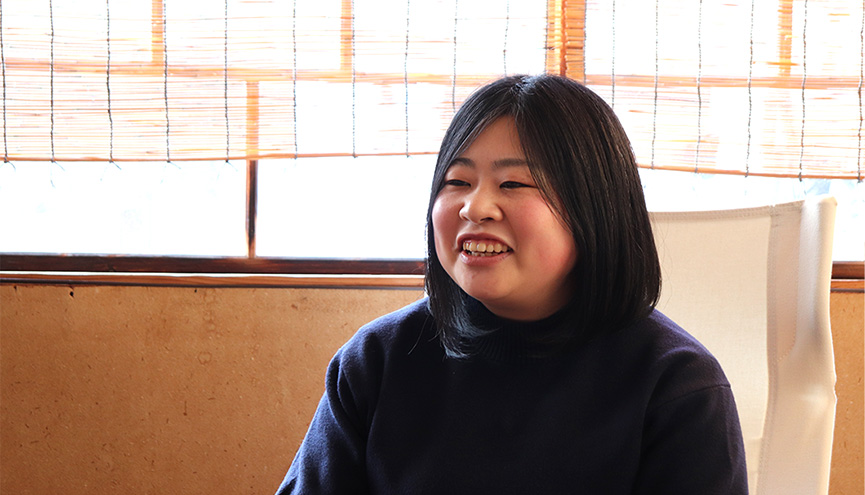
Sato: I, too, grew up with the brewery as my playground. As I now actually work there, of course there are various challenges, but the joy of receiving compliments for the delicious sake we create together makes me forget all the hardships.
Niida: Absolutely. Having the opportunity to turn my love for sake into a job brings me great happiness. However, it seems that the number of sake drinkers has been declining each year. As the number of customers decline, we need to explore what initiatives we can take as sake brewers.
Sato: We must craft sake that appeals to younger generations and reshapes their perceptions about sake. Thankfully, Fukushima Prefecture boasts an array of refreshing, flavorful sakes, catering to beginners.
Suzuki: Each brewery has its own unique character, and this diversity offers a vibrant palette of different flavors. This is what makes Fukushima Prefecture’s sake so intriguing. Moreover, the many sake tourism spots enhance its appeal. Some breweries, like Niida Honke, host events, while others regularly welcome visitors for tours.
Niida: With the rise in international tourists post-pandemic, I would love to showcase the charm of Fukushima’s sake tradition in various, new ways.
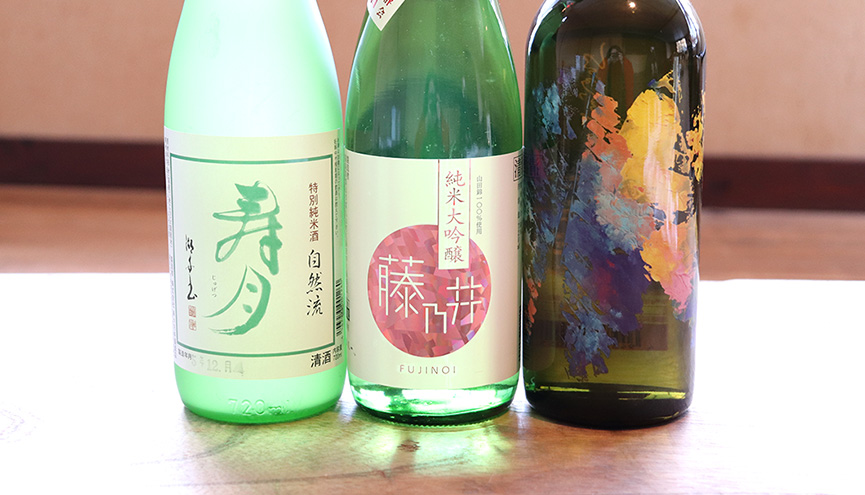
—Do you have any future goals?
Suzuki: Currently our master brewer is only on-site during the sake-making season, but I feel we might need to think about how to further strengthen our brewing team down the line. We are confident in the quality of our current products, but I’d like to increase the variety of flavors.
Sato: Over the past few years, our sake has become increasingly recognized and received various awards. To spread the deliciousness of our sake to a wider audience, I plan to engage in reaching out via platforms like social media.
Niida: Our focus is on rice cultivation. We aim to continue our efforts to ensure a sustainable environment for the upcoming generations.
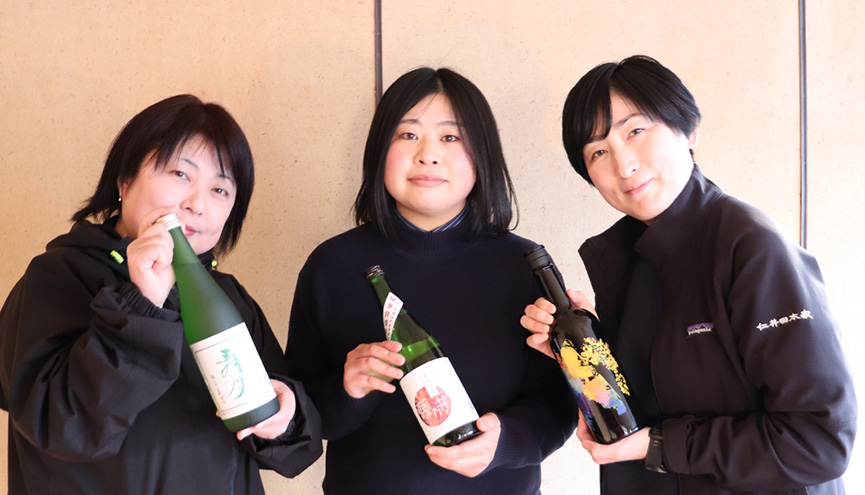
Women still face numerous challenges in the world of sake brewing. However, during discussions with these three women working in sake breweries in Fukushima, I witnessed a strong sense of pride and dedication to their roles.
Fukushima’s sake breweries showcase a diverse group of women excelling in various capacities, potentially serving as role models for future sake industry enthusiasts. Stay tuned for more updates on the women working in Fukushima’s sake breweries.
The achievements of Fukushima’s female brewers are also highlighted on the official Fukushima Sake website.
